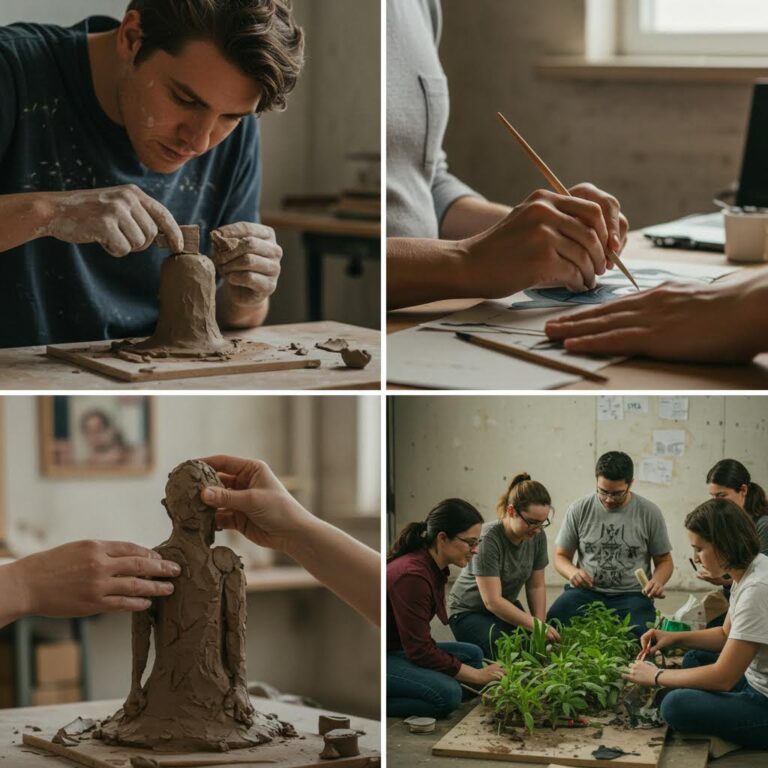Understanding the Psychology Behind Dice Throwing Superstitions
The Illusion of Control in Gambling Behavior
Superstitious dice rituals persist among gamblers due to our brain’s fundamental need to establish control during uncertain situations. The psychological phenomenon known as the illusion of control drives players to develop intricate throwing techniques and ritualistic behaviors, despite having no genuine influence over outcomes. 토토사이트 추천
How False Beliefs Take Hold
When gamblers experience early wins while using specific throwing techniques, their brains create powerful but false associations between these actions and positive results. This cognitive bias gets further reinforced through:
- Social validation from other players
- Anxiety reduction through ritual repetition
- Pattern recognition in random events
- Confirmation bias from remembered wins
The Mathematics vs. Psychology Gap
Despite elaborate dice-throwing rituals, the mathematical reality remains unchanged: each number has a precise 1/6 probability on every roll. These outcomes operate completely independently of:
- Previous roll results
- Throwing techniques
- Verbal commands
- Lucky charms or rituals
Understanding Persistent Beliefs
The disconnect between probability theory and human psychology creates a fascinating cognitive dissonance. Players maintain their belief in lucky throws because:
- The brain seeks patterns in randomness
- Ritual behaviors reduce gambling anxiety
- Remembered wins overshadow losses
- Social reinforcement strengthens beliefs
- Control rituals provide emotional comfort
This complex interplay between psychology and probability helps explain why superstitious behaviors persist even among experienced gamblers.
Understanding the Illusion of Control
Understanding the Illusion of Control in Gambling
The Psychology Behind False Control Beliefs
Cognitive biases shape our deepest instincts, particularly when faced with uncertainty.
Gamblers frequently demonstrate the illusion of control through ritualistic behaviors, despite mathematical evidence proving their actions can’t influence random outcomes. This powerful psychological phenomenon manifests most prominently in games of chance, where players desperately seek patterns in randomness.
Ritualistic Behaviors and Pattern Recognition
Players develop intricate gambling rituals that include specific dice-throwing techniques, timing patterns, and physical movements.
These behaviors emerge from our brain’s inherent pattern-recognition systems attempting to establish causality in random events. The illusion strengthens significantly when early wins coincide with particular rituals, creating a false correlation that reinforces superstitious beliefs.
Psychological Mechanisms and Anxiety Management
The illusion of control serves as a fundamental coping mechanism tied to our evolutionary need for environmental mastery.
Research shows individuals displaying stronger control illusions typically experience heightened anxiety during uncertain situations. These superstitious behaviors create an artificial sense of predictability, functioning as psychological anchors that reduce stress and boost confidence, even though they’ve zero impact on actual probability outcomes.
Key Factors Reinforcing Control Illusions:
- Early winning experiences
- Complex ritual development
- Anxiety reduction effects
- Pattern recognition bias
- False causality establishment
Common Dice Throwing Superstitions
Common Dice Throwing Superstitions: A Complete Guide
Physical Rituals in Dice Games
Dice throwing superstitions have evolved through centuries of gambling culture, creating an intricate web of beliefs and practices.
Physical rituals remain among the most widespread gambling superstitions, with players performing specific actions to influence their luck.
Common practices include blowing on dice before rolling, executing precise shaking patterns, or designating a “lucky throwing hand.” Many gamblers maintain strict body positioning and carefully calculated throwing angles.
Verbal Commands and Lucky Phrases
The power of spoken words plays a crucial role in dice throwing traditions. Players often employ verbal rituals ranging from forceful number calls to hushed personal mantras.
These lucky phrases typically incorporate specific numbers or personalized incantations believed to enhance rolling outcomes. Traditional gambling calls vary across different cultures and casino environments.
Numerical Patterns and Betting Behaviors
Dice superstitions frequently center around number combinations and mathematical sequences. Players develop complex systems of lucky numbers and actively avoid combinations perceived as unfavorable.
Betting patterns often reflect these numerical beliefs, with gamblers adjusting their wagers based on previous rolls and anticipated sequences. During losing streaks, these numerical superstitions typically intensify as players seek to establish control over random outcomes through pattern recognition and selective betting.
Psychological Impact on Gambling Behavior
The relationship between dice throwing rituals and player psychology reveals how deeply superstitions influence gambling behavior.
These practices create an illusion of control over chance-based outcomes, affecting betting decisions and risk assessment. The persistence of these beliefs demonstrates the powerful connection between superstition and gambling culture in both traditional and modern gaming environments.
The Science Behind Random Events
The Science Behind Random Events: Understanding Probability and Chance
Mathematical Foundations of Randomness
Random events operate according to precise mathematical principles of probability, transcending common misconceptions and superstitious beliefs.
Each occurrence in a truly random sequence functions as an independent event, maintaining consistent probability ratios regardless of previous outcomes.
For example, a six-sided die maintains a 1/6 probability for each number on every roll, demonstrating the fundamental principle of statistical independence.
Pattern Recognition and Human Perception
The human brain’s natural tendency to seek patterns often conflicts with genuine randomness.
True random sequences frequently contain clusters and apparent patterns that may seem significant but emerge naturally through probability.
When analyzing data sets, these clusters represent normal statistical distribution rather than meaningful correlations. Understanding this disconnect between perception and reality is crucial for accurate probability assessment.
Mathematical Framework and Probability Theory
Probability theory provides precise tools for calculating outcome likelihood in random events.
Complex probability calculations can determine exact odds for any combination of random occurrences, from simple dice rolls to sophisticated statistical models.
This mathematical framework reveals that randomness operates within defined parameters, governed by quantifiable probability laws rather than chance or superstition.
Key Concepts in Random Event Analysis
- Statistical independence of events
- Probability distribution patterns
- Mathematical probability calculations
- Random sequence generation
- Pattern recognition bias
These principles demonstrate that random events follow strict mathematical rules, operating independently of human intervention or belief systems. Understanding these concepts enables accurate probability assessment and informed decision-making based on statistical reality rather than perceived patterns.
Gambling Psychology and False Beliefs
Understanding Gambling Psychology and False Beliefs
The Psychology Behind Gambling Behaviors
Cognitive biases and psychological patterns play a crucial role in gambling behaviors, particularly regarding dice games.
Players frequently develop deeply entrenched beliefs about probability and randomness, despite clear scientific evidence contradicting these notions.
Common manifestations include ritualistic behaviors, such as blowing on dice or executing specific shaking patterns – behaviors that exemplify the illusion of control.
Pattern Recognition and Mental Models
The human brain’s inherent pattern-recognition systems lead gamblers to create elaborate mental frameworks for interpreting random outcomes.
Superstitious behaviors and beliefs emerge as players convince themselves that specific techniques yield superior results. These include notions about dice running “hot” or “cold” – a fundamental misunderstanding of statistical probability and random distribution.
Persistence of Gambling Fallacies
Cognitive Dissonance and Selective Memory
The persistence of false gambling beliefs demonstrates remarkable resilience against statistical evidence and logical reasoning.
Players exhibit selective memory bias, attributing winning outcomes to their superstitious rituals while dismissing losses as mere misfortune.
This creates a self-reinforcing cycle where cognitive distortions become increasingly resistant to correction, perpetuating problematic gambling behaviors and misconceptions about chance events.
Impact on Decision Making
These psychological biases significantly influence gambling decisions, leading to:
- Overestimation of personal control
- Misinterpretation of random sequences
- Reinforcement of superstitious behaviors
- Persistent belief in winning systems
These entrenched beliefs can develop into serious gambling fallacies, affecting both recreational and problem gamblers alike.
Breaking Free From Control Myths
Breaking Free From Gambling Control Myths
Understanding the Illusion of Control in Dice Games
Statistical independence lies at the core of breaking free from gambling control myths.
Each dice throw represents a distinct event, operating independently from previous rolls and entirely separate from any ritualistic behaviors. The mathematical probability remains constant regardless of personal superstitions or perceived patterns.
Empirical Evidence Against Control Myths
Data-driven analysis provides the most effective path to dispelling control illusions.
Systematic tracking of dice outcomes across hundreds of rolls consistently demonstrates that supposedly “lucky” throwing techniques produce identical statistical distributions to random throws. This empirical verification helps players recognize their cognitive biases and false beliefs about control.
Developing a Rational Approach
Cognitive restructuring requires acknowledging that dice outcomes follow strict physical and mathematical principles.
When confronted with the urge to perform control rituals, focusing on probability fundamentals helps maintain a clear perspective. This evidence-based approach enables players to abandon superstitious thinking and embrace a more rational understanding of dice games.
Key Steps to Breaking Control Myths:
- Track roll outcomes systematically
- Analyze statistical distributions
- Focus on mathematical probability
- Recognize independent events
- Abandon ritualistic behaviors
This process of breaking free from control myths leads to improved decision-making and a more grounded approach to dice games, firmly based in statistical reality rather than superstition.
Cultural Impact of Gambling Rituals
The Cultural Impact of Gambling Rituals: A Global Perspective
Traditional Gambling Rituals Across Cultures
Gambling rituals and cultural superstitions manifest uniquely across different societies, revealing profound connections between belief systems and games of chance.
From the vibrant atmosphere of Las Vegas casinos to the sophisticated baccarat tables of Macau, these customs significantly influence gambling behaviors.
Traditional practices include Chinese players embracing red as a lucky color while avoiding the number four, and Western gamblers maintaining rituals like blowing on dice or carrying talismans.
The Psychology Behind Gambling Superstitions
These cultural gambling practices persist despite scientific evidence refuting their effectiveness.
Statistical analysis reveals how superstitious behaviors reinforce cognitive biases, creating illusory connections between ritualistic actions and gambling outcomes.
Remarkably, these cultural beliefs about luck transcend educational and socioeconomic boundaries, maintaining their grip across diverse gambling communities.
Key Factors in Ritual Perpetuation
Social Reinforcement
Gambling communities strengthen these practices through shared experiences and collective participation, creating a powerful social bond around common beliefs.
Emotional Comfort
Rituals provide psychological support and a sense of familiarity in high-stakes environments, helping players manage anxiety and uncertainty.
Control Mechanisms
These customs offer players a perceived sense of influence over random outcomes, functioning as cultural touchstones that unite communities through shared traditions and practices.
Modern society continues to embrace these deeply rooted gambling customs, demonstrating their enduring influence on contemporary gaming culture and decision-making processes in games of chance.



